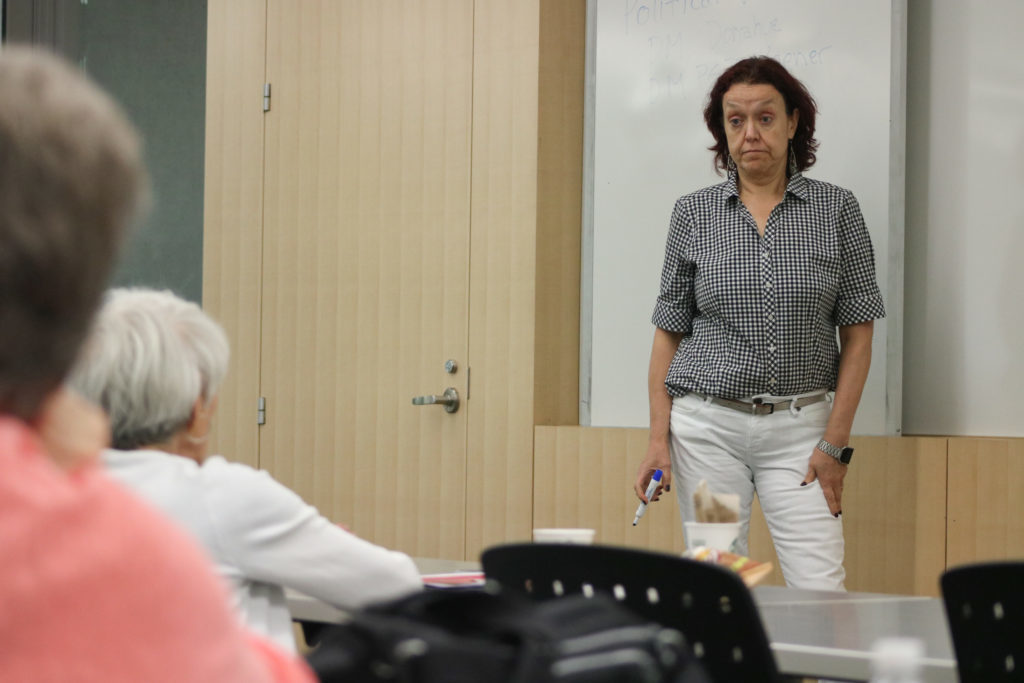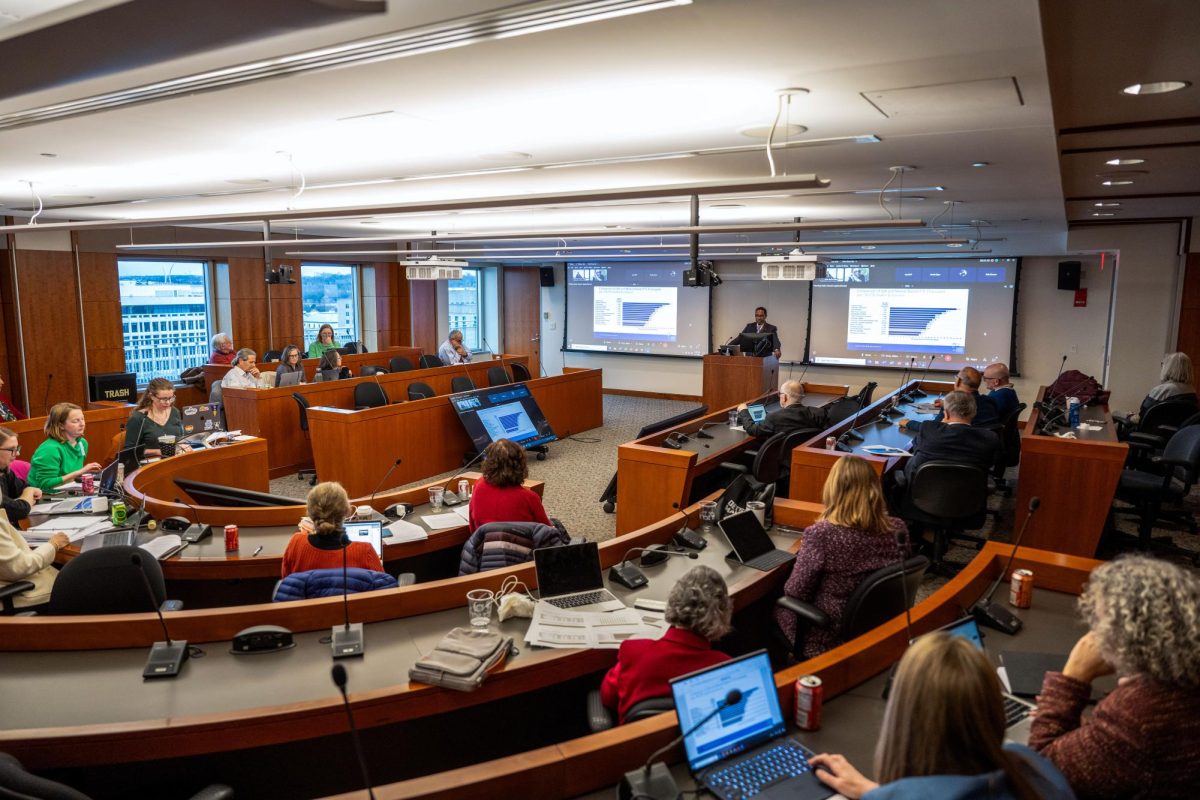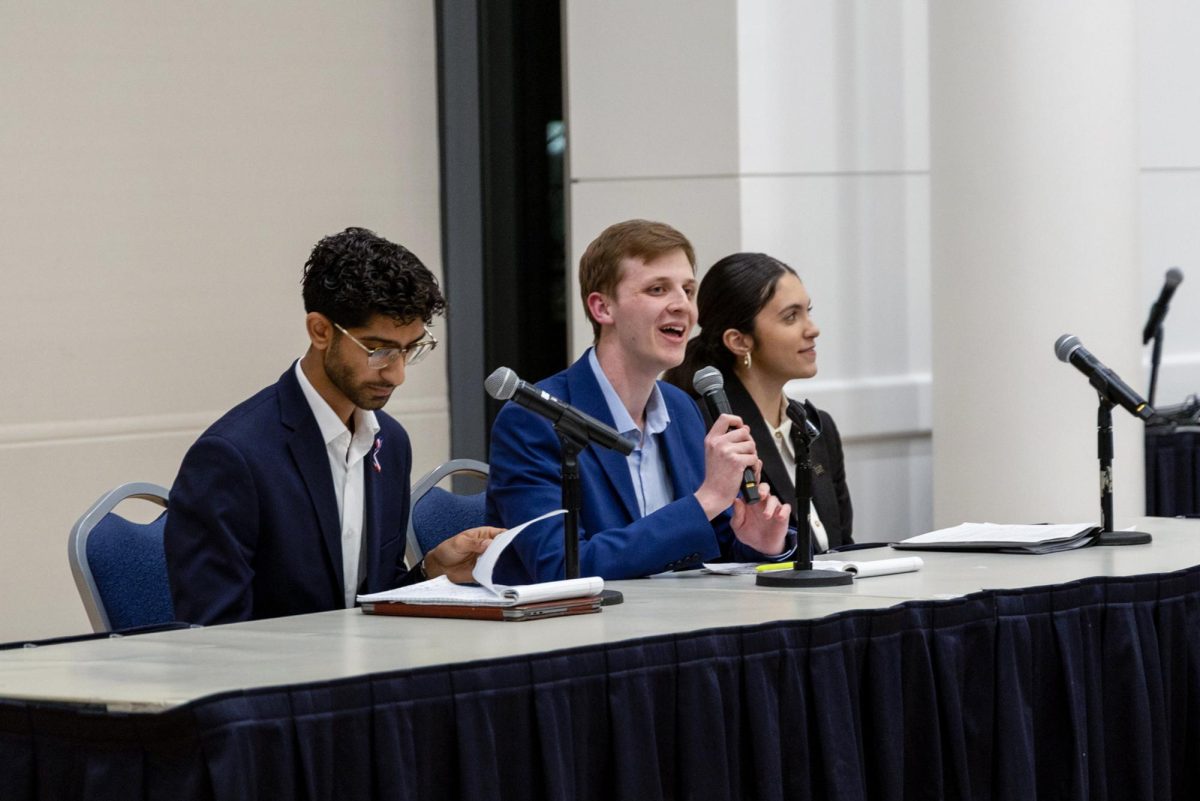Two years after its founding, a neighborhood effort to help the homeless is getting a boost from students.
The Foggy Bottom Association’s Homelessness Task Force plans to hold more frequent meetings and take direct action in the community by lobbying city officials and providing services to the homeless, rather than just researching the issue as in years past, Marina Streznewski, the president of the Foggy Bottom Association, said. The revamped effort comes after senior Jacob Smith, the vice president for community affairs for the Student Association, issued a call for student organizations to become more engaged in the community and help the city’s homeless population.
Bringing new people into conversations about homelessness will add diverse perspectives and new ideas for the task force to explore moving forward, Streznewski said.
“I thought, ‘Yeah, we should do this sooner rather than later and bring students in. Bringing in new people always adds a little energy to the conversation,’” she said. “It seemed that if we worked together, we could accomplish more.”
Smith, a former student member of The Hatchet’s board of directors, said he wants to develop models for short-term and long-term goals to increase community involvement by providing direct service to those experiencing homelessness, lobbying to the D.C. Council, raising money and holding rallies.
Smith said he has worked to get students involved with homelessness in the local community since assuming his role in the SA. Starting in May, he said he has put out an informal call to action by asking the SA and other student organizations to urge students from diverse backgrounds who are interested in homelessness, poverty and hunger to join the community’s efforts.
He and five other students volunteered to help improve the lives of the homeless and support future homelessness initiatives, he said.
“We are not going to end homelessness in D.C. or even Foggy Bottom, but I am really optimistic about the work we can all do in the short term and long term once we leverage all of our assets and resources,” Smith said.
The group plans to hold a training session to prepare residents who want to testify before the D.C. Council in November in support of a bill that would establish a task force to examine how vacant commercial buildings could be remodeled into affordable housing, Streznewski said.
The task force may also request a D.C. Council hearing on a proposed bathroom bill that would pay businesses to keep their restrooms public, something advocates say would help the city’s homeless population.
The task force has not met regularly since it was established, with the last meeting occurring in February, Streznewski said. She said the task force, which met Sunday, plans to convene again in about five to six weeks.
At the meetings, she said there has been a lack of consensus on addressing homelessness and misconceptions about homeless people in the community, like the notion that homeless people often do not work to find jobs and that they tend to have mental health problems.
“I have actually had one person say we should be providing portable toilets and tents for people so that these places are livable. At the same meeting, someone said to me, ‘I pay too much in taxes to have to look at it,’” Streznewski said. “I think, though, both of those points of view and every point in between represent the community.”
Of the roughly 20 people who showed up to the Homelessness Task Force meeting Sunday in the Science and Engineering Hall, four students attended to join the community in brainstorming solutions to local homelessness.
At the meeting, students and community members brainstormed ideas for actions the FBA will later debate, like how to convert unused office space in the city into affordable housing, partner with the University for Hunger and Homelessness Awareness Week and create an app with resources for the homeless and residents.
Nili Ezekiel, a sophomore studying human services and social justice, said she got involved because Smith told her that there was an opportunity to combat homelessness on the community level.
“I think just being aware of the community that we live in and not just being here and just doing nothing,” she said.
Eve Zhurbinskiy, a senior and a Foggy Bottom and West End Advisory Neighborhood commissioner, said there has not been enough student advocacy directly in Foggy Bottom and wants to see students get involved through local community meetings.
“I think meetings like this really help us brainstorm ways to be more compassionate in how to solve this problem,” she said. “I would love to see students come out to meetings.”





